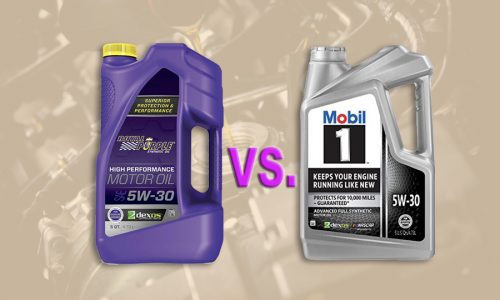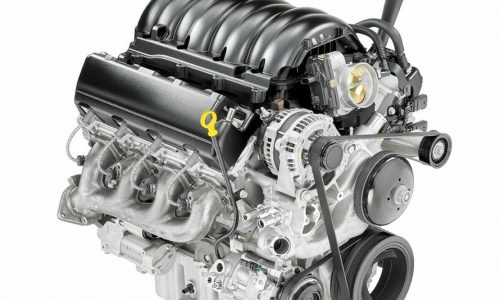Heavy-duty trucks are essential to the efficient carriage of commodities across great distances. These are highly used in the logistics and transportation industries. These robust vehicles are the workhorses of the road since they are built to withstand the worst conditions.
When thinking about these large vehicles, the topic of how far heavy-duty vehicles can go comes up. Let’s examine the elements affecting the number of miles these vehicles can last.
What are the Various Factors Influencing the Number of Miles a Heavy Truck Can Last?

The number of f miles a heavy-duty truck can last depends on various factors. In general, class 8 trucks are meant to serve more mileage than class 7 trucks.
Heavy duty trucks generally go up to 500,000- 700,000 miles. At times, it may even require engine upgrades and other services in terms of mileage:
Maintenance of the vehicle:
The number of miles these trucks can last depends on their maintenance. Heavy duty trucks are built with high-quality materials to transport heavy cargo from one place to another. However, these do need maintenance.
Ensure changing the oil at regular intervals, and go for engine tune-ups and inspections. This will help in keeping the truck parts in premium condition and serve the best mileage.
These trucks can even last up to 20 years with proper maintenance. If the trucks are well-maintained and do not face accidents, you only need to replace the parts after expiry. T o get authentic parts for your truck you can visit Https://www.maximinc.com/parts
Weight distribution or load capacity:
Another important factor influencing the lifespan of these trucks is the weight it carries. Overloading a heavy-duty truck constantly can lead to wear and tear.
This can further affect the miles it can travel. So, it is extremely important to abide by the weight regulation when loading the truck.
Manufacturer’s manual:
When buying a truck like this, the owner will be provided with a maintenance manual by the manufacturer.
This manual includes the necessary steps to follow to keep the truck in its best form. Following the manual will keep you aware of when to replace the air filter or the sparking plug.
Condition of roads:
Another important fact that can affect the truck’s mileage is the condition of the roads. Heavy duty trucks are mostly meant for transporting cargo to distant areas depending on the need of the company.
So, traveling through rough roads under extreme climatic conditions can affect the lifespan and the mileage of the vehicle.
Life Expectancy of Heavy-duty Trucks in Terms of Miles

A Heavy-duty truck’s lifespan varies based on various factors. However, a well-maintained and responsibly driven truck can survive 15 to 20 years or more on average.
Some commercial fleet operators may choose to retire their trucks once they have reached a specified mileage threshold, which is usually between 500,000 and 1,000,000 miles.
However, this decision is influenced by factors like as operating expenses, resale value, and the installation of new laws.
Individual vehicle components, such as engines and transmissions, may have varying lifetimes. Replacing a significant component is a typical practice in the trucking business.
It is known as overhauling the engine. When carried out appropriately, it can improve the performance and lifespan of the vehicle.
Essential Tips to Increase the Number of Miles of Miles a Heavy Duty Truck Lasts
Now, there are various ways in which you can make your heavy duty truck last long. Here are some tips you can follow:
Change the oil at regular intervals:
If you want your vehicle to last long, change the oil at regular intervals. It is necessary to change the oil at least once every six months. If your truck is old, consider changing the oil filter as well.
Do not ignore the tires:
Some owners end up ignoring the tires of the truck. However, changing the tires of the truck is equally important as changing the oil.
The tires of the load-carrying truck can wear out frequently depending on the power system of the vehicle. Thus, changing them at regular intervals ensures the trucks are rightly maintained and smoothly traveling.
Balance the tire pressure:
When changing or turning the tires, ensure to maintain the balance of the tire pressure. This helps in easy-traveling on uneven or rough roads. When the weight is evenly balanced on the axle, the tires stay healthy, and the vehicle lasts more miles.
Align the vehicle:
When driving a heavy-duty truck, properly aligning is necessary to maintain balance. Misalignment of the vehicle can lead to fast wear and tear due to mishandling.
This can happen due to various reasons, like a heavy load on one side of the vehicle and uneven tire pressure. It is also necessary to keep the brake fluids in check to avoid disbalance.
Inspect the coolant:
Lastly, it is important to keep the coolant of the vehicle in check. Heavy duty trucks produce a lot of heat. So, maintaining the coolant level in order to appropriately keep the heat generation in check becomes crucial.
To avoid overheating the engine, go through the manufacturer’s manual and choose the best coolant for the truck. This way, you can ensure that your truck remains properly functional for a long time to come.

Use Telematics for monitoring:
Most truck owners at present are using telematic systems to monitor the performance and efficiency of heavy duty trucks. If you own a lot of these trucks, having telematic systems installed can make truck maintenance easy.
These systems will provide real-time updates on the condition of the engine, fuel efficiency, and so on. This enables you to preemptively work on any part of the truck that has the potential to malfunction in the future.
Load-carrying trucks handle the hardest responsibility of transporting cargo. They are the workhorses of the transportation industry, responsible for carrying heavy loads over long distances, often through challenging terrains and varying weather conditions.
It is natural to expect your vehicle to last more miles. However, it is only possible when you take good care of it.



